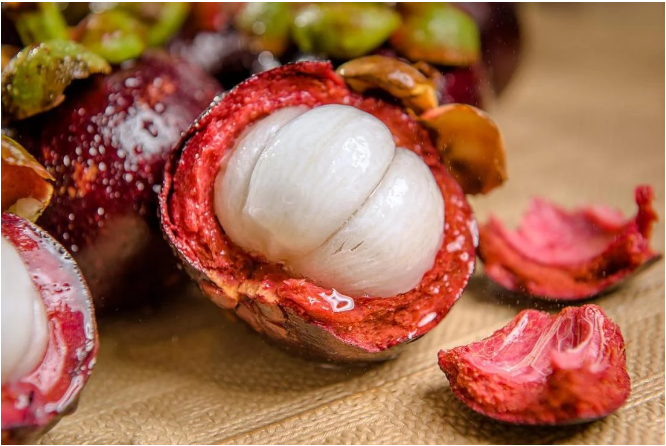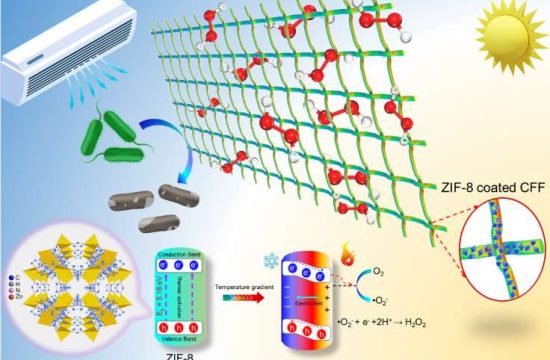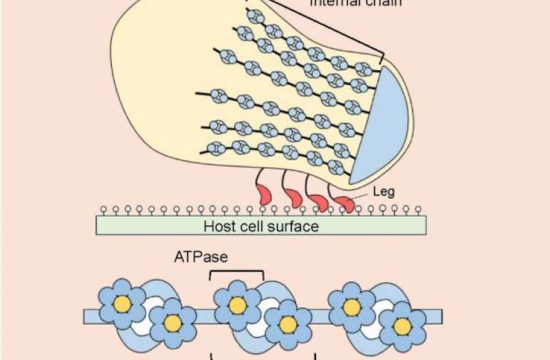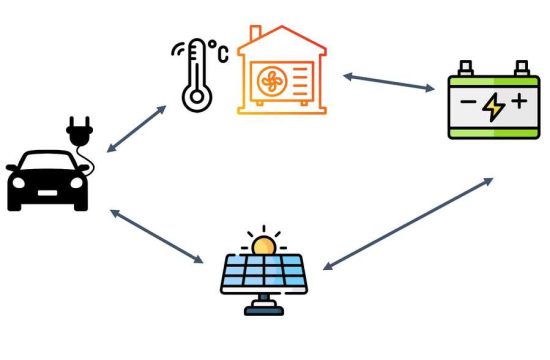A group of researchers in Thailand has replicated “Hydroxy-xanthones”, the vital extracts rich in antioxidants found in mangosteen peels that kill germs and halt infections in the intestinal mucosa. It hopes to expand to include health products for humans and animals in the future.

Not only is “Mangosteen”, the queen of Thai fruits, a delicious and healthy fruit, but its peel is also abundant with beneficial extracts. In days of old, local wisdom deemed mangosteen peel as a good cure for upset stomachs, inflammation on the skin, and cure wounds in animals. Today, there have been efforts to apply mangosteen peel extracts to various medicines and products such as plasters, gels, and surgical masks.
The benefits of mangosteen peel are even greater. Associate Professor Dr. Suthasinee Poonyachoti of the Department of Physiology, Faculty of Veterinary Science, Chulalongkorn University, Thailand, has recently been successful in developing a substance that replicates the chemical structure of mangosteen peel extract that helps stall leakages in the intestine. Aside from its health benefits, the extract reduces the need for medication for both humans and animals.
Associate Professor Dr. Suthasinee to discover Xanthones, a substance in the Flavanol group that is effective in combatting or halting various types of inflammation with qualities such as anti-cancer, anti-bacterial, anti-allergy, anti-inflammatory, anti-microbial, anti-malarial and anti-oxidant.
With Xanthones’ ability to reduce inflammation and destroy bacteria, a research project in collaboration with the Faculty of Medicine, Srinakharinwirot University, Thailand, was launched to develop and extract Xanthones in the form of Hydroxy Xanthones or HDX with the highest efficacy for the health of humans and animals.
“Extractions of mangosteen peels have brought about a variety of substances both beneficial and harmful. Moreover, they must go through a rather complicated process and we cannot control the quality of the extracts since it is dependent upon factors such as planting methods, use of fertilizer, climate, care, etc.” Associate Professor Dr. Suthasinee enumerated how the research project came about.
“We chose the method of analysis and sought to mimic the chemical structure of Xanthones from mangosteen peels, giving us the desired essential extracts which are easier to apply directly as part of adjuvants in medicines, foods, and other products and to control their efficacy in the best manner possible.”
The leaky gut syndrome can lead to many diseases especially septicemia that can be hidden in human bodies. This happens when there is an abnormality in the functions of the intestines and the microvilli.
“If you can imagine how the cells in the microvilli work. They line up next to each other and are responsible for screening and controlling toxic substances, and bacteria that enter the bloodstream. When inflammation occurs, the cells cannot line up next to each other and function like a fortress, which makes it possible for toxic or foreign substances to enter the bloodstream. The condition is dangerous and must be treated before it is too late,” she explained.
A leaky gut does not always show any symptoms or if it does it could affect other physical ailments such as overtiredness, fatigue, headaches, or other body aches without any clear indication of the causes.
“The cause is not clear but hypothesized to be the result of stress. If the symptom occurs in human beings, they can consult physicians right away. However, if this occurs in animals, it is harder to tell if they are sick.”
This research is at the experimental stage to determine the quality of HDX’s performance. It has been used in pig farms first before being experimented on human beings and larger and more diverse types of animals. As Associate Professor Dr. Suthasinee concluded, “In the future, HDX will experiment in adjuvants in a variety of products like medicines and food items to improve the quality of life of both humans and animals.”








